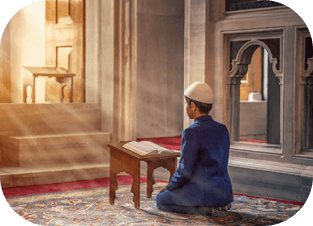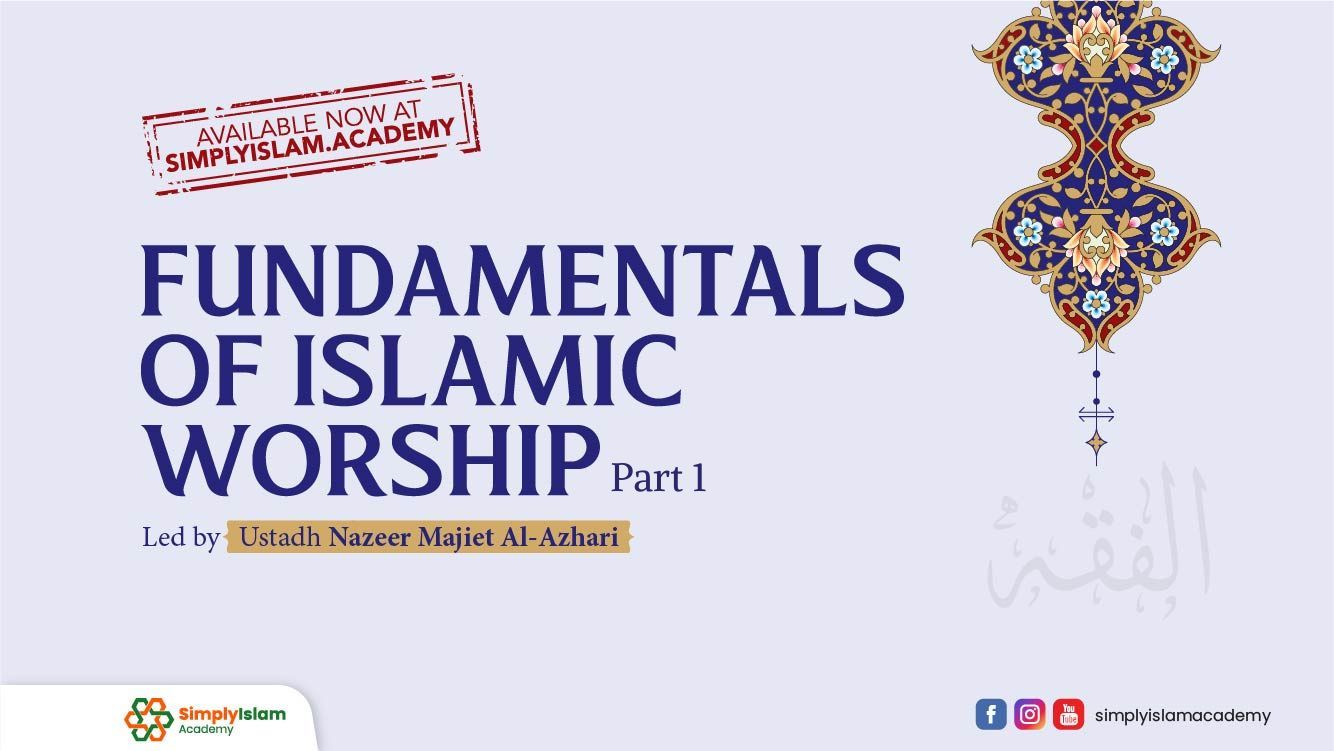-
Spirituality
How to Pray Istikhara? A step by step Guide
-
Fatima Sajid
-
22 Nov 2021

Many Muslims seek to learn how to pray Istikhara, but what kind of prayer is it?
Salat ul-Istikhara is a gift from Allah the Almighty for Muslims.
When a Muslim is confused about how to resolve a matter, or how to make decisions, he can ask for Allah, the Glorious, to aid and guide him by reciting the Istikhara prayer.
It is a powerful tool that God the Most-Merciful, the Compassionate, has given his slaves so that they can seek His Guidance and Wisdom in all matters of life–whether big or small.
This section aims to elaborate the meaning of Istikhara, its ruling in Islam, and the etiquettes one has to endorse while praying Istikhara prayer. We will further discuss the dua of Istikhara and mention a detailed guide on how to perform the Istikhara prayer.
Salat ul-Istikhara is a gift from Allah the Almighty for Muslims. When a Muslim is confused about how to resolve a matter, he can ask for Allah, the Glorious, to aid him by offering two rak'ahs of the Istikhara prayer.
Salat ul-Istikhara is a gift from Allah the Almighty for Muslims. When a Muslim is confused about how to resolve a matter, he can ask for Allah, the Glorious, to aid him by reciting the Istikhara prayer(namaz).
What is Istikhara Prayer?
The word Istikhara in istikhara prayer linguistically means to ask for good in a matter. Istakhar (zabar on "ta" (Arabic alphabet) signifies past tense and points towards some demand. Thus it means demanding or asking well. Ibn-e-Aseer says it means when something good is asked from Allah the Merciful. According to Islamic theology, Istikhara means to ask for Allah's infinite wisdom in an issue of confusion with the hopes that one will be directed towards that which is better for him.
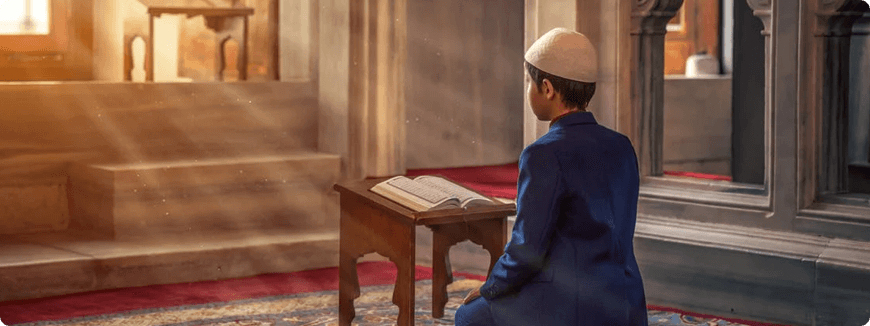
Ruling of Istikhara Prayer:
The scholars of Islam have unanimously agreed upon the status of Istikhara prayer as Sunnah and its validity comes from the hadith of Jabir (May Allah be pleased with him):
"The Messenger of Allah used to teach his companions to seek counsel from Allah (Istikhara prayer) in all things, just as he used to teach them chapters from the Qur'an.
He said:
He said:
'If any one of you is concerned about a decision he has to make or wants to take an action then let him pray two units rak’ah of voluntary Salah prayer and say:
"O Allah, I seek your counsel through your knowledge and I seek your assistance through your might and I ask you from your immense favor, for verily you alone decree our fate while I do not, and you know while I do not, and you alone possess all knowledge of the unseen. O Allah, if You know this matter ( mention matter here ) to be good for me in relation to my religion, my life and livelihood and the end of my affairs, my present and future, then decree it for me and facilitate it for me, and then place blessing for me within it, and if You know this affair to be harmful for me concerning my religion, my life and livelihood and the end of my affairs, then remove it from me and remove me from it, and decree for me what is good, wherever it may be, and make me content with it."
Another translation is as follows: O Allah, I seek your guidance [in making a choice] by virtue of your knowledge, and I seek ability by virtue of your power, and I ask you of your great bounty. You have power, I have none. And you know, I know not. You are the Knower of hidden things. O Allah, if in your knowledge, this matter (then it should be mentioned by name) is good for me both in this world and the hereafter, then ordain it for me, make it easy for me, and bless it for me. And if in your knowledge it is bad for me and for my religion, my livelihood and my affairs (or: for me both in this world and the next), then turn me away from it, [and turn it away from me], and ordain for me the good wherever it may be and make me pleased with it." (Bukhari, Tirmidhi, Abu Dawood, Ibn Majah and Ahmad)
Learn from the Best Muslim Scholars
Fiqh
Aqidah
Qur'an
Sirah
Figurative meaning of Istikhara Prayer:
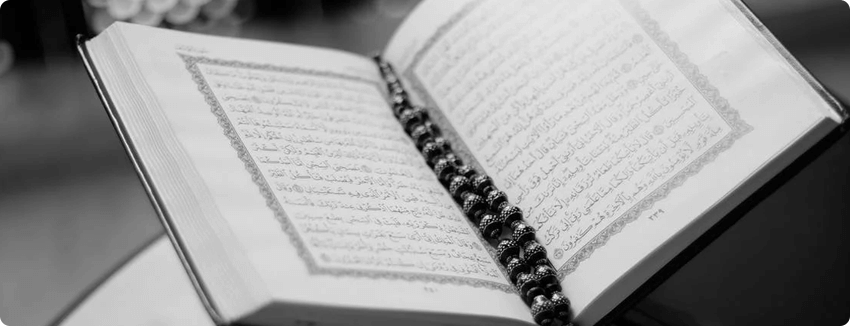
Religious scholars, while deciphering the significance of Istikhara , communicated their thoughts in the accompanying way: "If something mists the clearness or when there exists a doubt about doing or surrendering of a specific demonstration, then, at that point, Istikhara supplication should be performed. After that whatever conclusion might come up to the mind of the one who supplicated should to be acknowledged as reasonable and genuine. It means to suspend doubt rather than to investigate certain things. In the event that anything conflicts with the standards or customs of everyday life, then, at that point, man is needed to implore Allah the Merciful for showing him the correct way. So he might choose to act effectively.
A man submits himself to the desire of Allah the Merciful, in light of the fact that, Allah realizes better what is useful for man. Whatever is useful for man, it is given to him by Allah the Merciful.
Assuming Istikhara is to be explained shortly, we come to realize that Istikhara petition is a method through which a man requests things from Allah. salatul Istikhara isn't just two rak'ahs of prayers;
Jabir Bin Abdullah (May Allah be pleased with him) quotes a hadith from the Prophet ﷺ and says that in each and every matter the Prophet ﷺ used to teach us the Istikhara as a Surah of Qur’an was taught to us and then the Prophet (Peace and Blessings be upon him)used to say that whenever you take any step to do anything you should offer the two (Rak’ah) prayer and then dua should be sought from Allah.
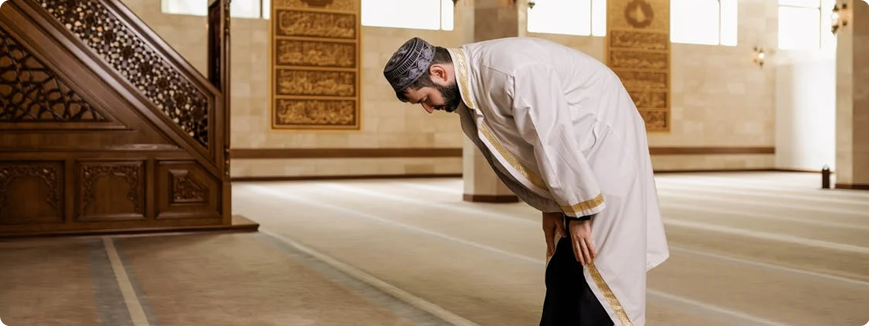
As per Islamic Jurisprudence, Istikhara petition can be done when one deals with certain issues. To look for direction regarding an issue, one hands it over to Allah the Merciful and looks for direction with respect to that particular matter. Thus, in this regard whatever reaction or conclusion comes through Istikhara should be acknowledged without a second thought.
Imam Ibn Taimiyyah says that whoever performs Istikhara shall not regret the decision he took depending on it. Allah the Merciful says in the Qur’an:
فَبِمَا رَحْمَةٍ مِّنَ اللّهِ لِنتَ لَهُمْ وَلَوْ كُنتَ فَظًّا غَلِيظَ الْقَلْبِ لاَنفَضُّواْ مِنْ حَوْلِكَ فَاعْفُ عَنْهُمْ وَاسْتَغْفِرْ لَهُمْ وَشَاوِرْهُمْ فِي الأَمْرِ فَإِذَا عَزَمْتَ فَتَوَكَّلْ عَلَى اللّهِ إِنَّ اللّهَ يُحِبُّ الْمُتَوَكِّلِينَ
“By an act of mercy from God, you [Prophet] were gentle in your dealings with them –– had you been harsh, or hard-hearted, they would have dispersed and left you –– so pardon them and ask forgiveness for them. Consult with them about matters, then, when you have decided on a course of action, put your trust in God: God loves those who put their trust in Him.” (3:159)
Perform Istikhara Prayer in All Things:

Concerning the expression "the Messenger of Allah (Peace and Blessings of Allah be upon him) used to teach us to make Istikhara in all things", Ibn Abi Jamrah said:
It is an overall expression which points to something explicit. As to issues that are waajib (mandatory) or mustahab (supported), there is no requirement for Istikhara to be done in order to choose whether to do them, and with respect to issues that are haram (prohibited) or makrooh (loathed), there is no requirement for Istikhara to be done to choose whether to stay away from them.
The issue of Istikhara supplication is restricted to issues that are mubaah (permitted) or in mustahab matters when there is a choice to be made concerning which one ought to be given more attention. I say: it directs towards both incredible and little matters, and presumably a small issue could shape the basis for a major issue.
Advice Before Istikhara Prayer(namaz):
It is viewed as a decent practice to counsel somebody who has sufficient insight, experience and information with respect to a matter prior to doing Istikhara for it. Allah the Merciful notices in the Qur'an:
وَشَاوِرْهُمْ فِي الْأَمْرِ
“Consult with them about matters.” (3:159)
Istikhara Prayer Tutorial:

Dua for Istikhara:
The Arabic words and the translation for the dua of Istikhara in the hadith by Jabir (May Allah be pleased with him) to be read after one performs two rak’ah are as follows:
اللَّهُمَّ إنِّي أَسْتَخِيرُكَ بِعِلْمِكَ، وَأَسْتَقْدِرُكَ بِقُدْرَتِكَ، وَأَسْأَلُكَ مِنْ فَضْلِكَ الْعَظِيمِ فَإِنَّكَ تَقْدِرُ وَلا أَقْدِرُ، وَتَعْلَمُ وَلا أَعْلَمُ، وَأَنْتَ عَلامُ الْغُيُوبِ..
اللَّهُمَّ إنْ كُنْتَ تَعْلَمُ أَنَّ هَذَا الأَمْرَ (هنا تسمي حاجتك) خَيْرٌ لِي فِي دِينِي وَمَعَاشِي وَعَاقِبَةِ أَمْرِي فَاقْدُرْهُ لِي وَيَسِّرْهُ لِي ثُمَّ بَارِكْ لِي فِيهِ..
اللَّهُمَّ وَإِنْ كُنْتَ تَعْلَمُ أَنَّ هَذَا الأَمْرَ (هنا تسمي حاجتك) شَرٌّ لِي فِي دِينِي وَمَعَاشِي وَعَاقِبَةِ أَمْرِي فَاصْرِفْهُ عَنِّي وَاصْرِفْنِي عَنْهُ وَاقْدُرْ لِي الْخَيْرَ حَيْثُ كَانَ ثُمَّ ارْضِنِي بِهِ. (وَيُسَمِّي حَاجَتَهُ) وَفِي رواية ثُمَّ رَضِّنِي بِهِ
"O Allah I seek your counsel through your knowledge and I seek your assistance through your might and I ask you from your immense favor, for verily you alone decree our fate while I do not, and you know while I do not, and you alone possess all knowledge of the unseen. O Allah, if you know this matter ( mention matter here ) to be good for me in relation to my religion, my life and livelihood and the end of my affairs, my present and future, then decree it for me and facilitate it for me, and then place blessing for me within it, and if you know this affair to be harmful for me concerning my religion, my life and livelihood and the end of my affairs, then remove it from me and remove me from it, and decree for me what is good, wherever it may be, and make me content with it."
Learn from the Best Muslim Scholars
Fiqh
Aqidah
Qur'an
Sirah
Etiquettes of Istikhara Prayer:

One must keep the following etiquette of Istikhara in his/her mind to get the required result:
1. External piety: One must dress clean and practice hygiene before performing Istikhara prayer.
2. Interior devotion: Internal neatness is likewise essential for the Istikhara. Istikhara should be done after sincere repentance from Allah, clearing your brain and heart from the common exercises and materialistic belongings.
3. Intention (niyyah) of Istikhara: No worship in Islam is accepted without the niyyah. Hence the intention for Istikhara prayer is of utmost importance if someone wants to practice it. As our beloved Prophet Muhammad ﷺ said: Actions are but by intention.
4. Apology to Allah: Sincere and genuine atonement is one of the fundamental decorums of Istikhara.
5. To pray the praise of Allah the Merciful and send blessings upon Prophet Muhammad ﷺ: In the start of Dua-e-Istikhara and its finish, Al-Hamd and greeting ought to be read.
6. Genuine trust/conviction: There ought to be valid trust on Istikhara. One needs to acknowledge whatever Allah the Merciful has liked for him/her and that it will be better for him.
7. Decision of appropriate time: Suitable time for Istikhara supplication should be picked. Morning time is considered entirely reasonable on the grounds that during this time, Allah the Merciful acknowledges supplicating. Abu-Hurairah (May Allah be pleased with him) cited the expressions of the Prophet ﷺ that Allah the Merciful comes down to the worldly sky every night. In the last moments of the night during the time of qiyam al layl, Allah the Merciful announces His creatures to call upon Him: “Is there anyone to call me” whosoever calls Him, He accepts his prayer, fulfills his demands, and forgives him.
2. Interior devotion: Internal neatness is likewise essential for the Istikhara. Istikhara should be done after sincere repentance from Allah, clearing your brain and heart from the common exercises and materialistic belongings.
3. Intention (niyyah) of Istikhara: No worship in Islam is accepted without the niyyah. Hence the intention for Istikhara prayer is of utmost importance if someone wants to practice it. As our beloved Prophet Muhammad ﷺ said: Actions are but by intention.
4. Apology to Allah: Sincere and genuine atonement is one of the fundamental decorums of Istikhara.
5. To pray the praise of Allah the Merciful and send blessings upon Prophet Muhammad ﷺ: In the start of Dua-e-Istikhara and its finish, Al-Hamd and greeting ought to be read.
6. Genuine trust/conviction: There ought to be valid trust on Istikhara. One needs to acknowledge whatever Allah the Merciful has liked for him/her and that it will be better for him.
7. Decision of appropriate time: Suitable time for Istikhara supplication should be picked. Morning time is considered entirely reasonable on the grounds that during this time, Allah the Merciful acknowledges supplicating. Abu-Hurairah (May Allah be pleased with him) cited the expressions of the Prophet ﷺ that Allah the Merciful comes down to the worldly sky every night. In the last moments of the night during the time of qiyam al layl, Allah the Merciful announces His creatures to call upon Him: “Is there anyone to call me” whosoever calls Him, He accepts his prayer, fulfills his demands, and forgives him.
Step By Step Guidance to Perform Istikhara (How to pray Istikhara):
- Performing wudu (ablution) for Istikhara prayer.
- The intention for Istikhara is a compulsory element.
- Praying two rak’ah. It is preferable to read surah Al-Kafiroon in the first rak’ah after surah Al-Fatiha and surah Al-Ikhlas in the second rak’ah after surah Al-Fatiha.
- Saying Tasleem after the second rak’ah.
- After saying salam, one raises his/her hands and starts praying. Starting by pronouncing the Names and Attributes of Allah the Merciful is preferable.
- After remembering Allah the Merciful, one sends salutations upon the Prophet ﷺ. It is best to read the Tashahhud that one prays during prayer. The Tashahhud is as follows:
- The intention for Istikhara is a compulsory element.
- Praying two rak’ah. It is preferable to read surah Al-Kafiroon in the first rak’ah after surah Al-Fatiha and surah Al-Ikhlas in the second rak’ah after surah Al-Fatiha.
- Saying Tasleem after the second rak’ah.
- After saying salam, one raises his/her hands and starts praying. Starting by pronouncing the Names and Attributes of Allah the Merciful is preferable.
- After remembering Allah the Merciful, one sends salutations upon the Prophet ﷺ. It is best to read the Tashahhud that one prays during prayer. The Tashahhud is as follows:
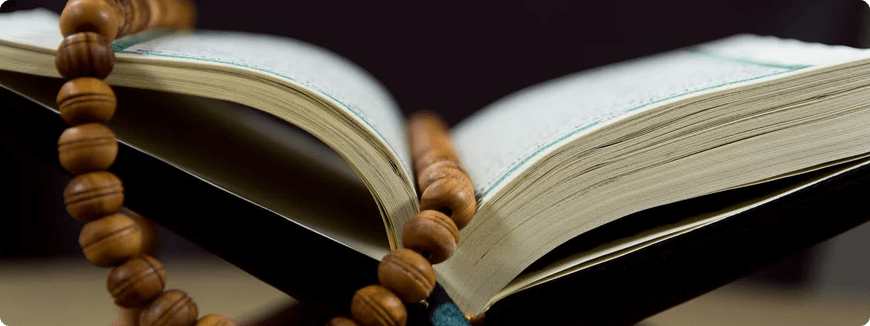
اللّهُمَّ صَلّ عَلَى مُحَمَّدٍ وَعَلَى آلِ مُحمَّدٍ كمَا صَلَّيْتَ عَلَى إبراهيم وَعَلَى آلِ إبْرَاهيمَ وَبَارِكْ عَلَى مُحمَّدٍ وعَلَى آلِ مُحمَّدٍ كمَا بَارَكْتَ عَلَى إبْرَاهيمَ وَعَلَى آلِ إبْرَاهيمَ في العالمينَ إنَّكَ حَمِيدٌ مَجِيدٌ
-One then proceeds to read the dua of Istikhara which is mentioned in the hadith of Jabir (May Allah be pleased with him):
اللَّهُمَّ إنِّي أَسْتَخِيرُكَ بِعِلْمِكَ، وَأَسْتَقْدِرُكَ بِقُدْرَتِكَ، وَأَسْأَلُكَ مِنْ فَضْلِكَ الْعَظِيمِ فَإِنَّكَ تَقْدِرُ وَلا أَقْدِرُ، وَتَعْلَمُ وَلا أَعْلَمُ، وَأَنْتَ عَلامُ الْغُيُوبِ..
اللَّهُمَّ إنْ كُنْتَ تَعْلَمُ أَنَّ هَذَا الأَمْرَ (هنا تسمي حاجتك) خَيْرٌ لِي فِي دِينِي وَمَعَاشِي وَعَاقِبَةِ أَمْرِي فَاقْدُرْهُ لِي وَيَسِّرْهُ لِي ثُمَّ بَارِكْ لِي فِيهِ..
اللَّهُمَّ وَإِنْ كُنْتَ تَعْلَمُ أَنَّ هَذَا الأَمْرَ (هنا تسمي حاجتك) شَرٌّ لِي فِي دِينِي وَمَعَاشِي وَعَاقِبَةِ أَمْرِي فَاصْرِفْهُ عَنِّي وَاصْرِفْنِي عَنْهُ وَاقْدُرْ لِي الْخَيْرَ حَيْثُ كَانَ ثُمَّ ارْضِنِي بِهِ. (وَيُسَمِّي حَاجَتَهُ)
وَفِي رواية ثُمَّ رَضِّنِي بِهِ
- When one reaches the part اللَّهُمَّ إِنْ كُنْتَ تَعْلَمُ أَنَّ هَذَا الأَمْرَ, they should name the matter they are seeking Istikhara for. As an example one can ask for guidance with regards to marriage to someone (Istikhara for marriage is done in exactly the same way like for any other matter and so the dua of Istikhara for marriage is same), traveling to a country, taking up a new job, or buying a new car. After naming the matter, one continues with the dua from خَيْرٌ لِي فِي دِينِي وَمَعَاشِي وَعَاقِبَةِ أَمْرِي.
- Naming the matter should be repeated twice, once while mentioning the Khair and second while mentioning the Shar.
- After completing the istikhara dua, one reads the salutations upon the Prophet ﷺ a second time or better substitute this with the Tashahud like mentioned previously.
- With this, the Istikhara ends and one should now leave the matter completely in Allah’s hands for better guidance without any fear or regret.
Ibn Abi Jamrah said: The wisdom behind putting the Salat before the dua is that Istikhara is intended to combine the goodness of this world with the goodness of the next. A person needs to knock at the door of the King (Allah the Merciful), and there is nothing more effective for this than prayer, because it contains glorification and praise of Allah the Merciful, and expresses one's need for Him at all times.
See also: salatul hajat step by step
See also: salatul hajat step by step
What to do after Istikhara Prayer?
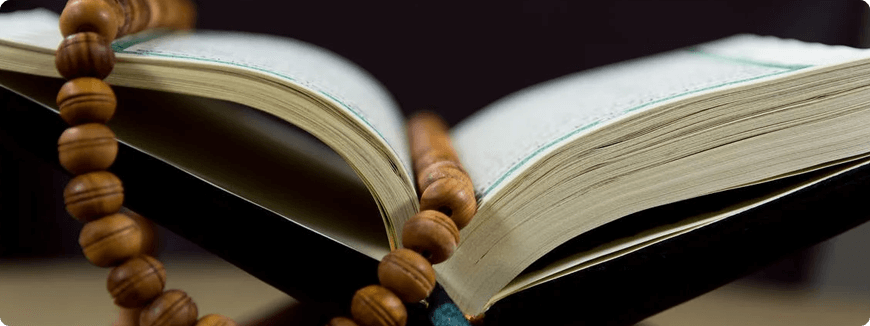
None of us truly knows the result of any affair, so it is significant that we suspend our own judgment or tendency with regards to the specific matter being looked for, and trust that Allah the Merciful will give one an indication or to get things going in a manner that demonstrates to us what we ought to do. In opposition to what individuals say, it isn't required that you get a dream.
Rather a few researchers talk about the "Expansion of the chest (Inshirah al Sadr)", which is a sensation of delicacy, extension and affirmation that something is right. In the end, it isn't required that you settle the score on a "feeling" or any incredible otherworldly experience, rather, you ought to just confide in Allah the Merciful that dhaving looked for His guide, He will direct you to that which is ideal.
Provided one does the prayer of guidance (Istikhara) with the proper manners, most important of which is to truly consign the matter to Allah the Merciful, whatever unfolds from there on is itself the appropriate response and we should believe that this is best for worldly and next-worldly affairs.
Timings for the Istikhara prayer:
All the scholars of Islam are unified over the ruling that Istikhara prayer can’t be performed during the timings in which prayers are prohibited.
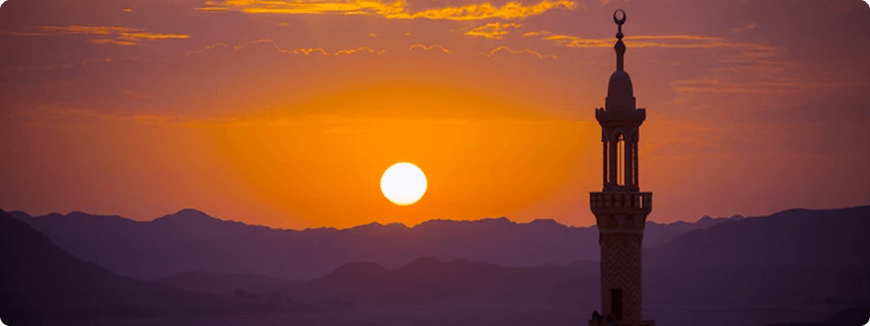
Narrated Umar (May Allah be pleased with him):
"The Prophet ﷺ forbade praying after the Fajr prayer till the sun rises and after the Asr prayer till the sun sets." Narrated Ibn Abbas (May Allah be pleased with him): Some people told me the same narration.(Bukhari)
Another hadith by Ibn Umar (May Allah be pleased with him) mentions Allah's Messenger (Peace and Blessings be upon him) as saying: Do not intend to observe prayer at the time of the rising of the sun nor at its setting, for it rises between the horns of Satan. (Muslim)
Should Istikhara Prayer be repeated?
It is completely normal if one still feels confused about the matter at hand after performing Istikhara prayer. There are no restrictions regarding how often one can perform Istikhara for a solitary matter. The primary objective of Istikhara is a sensation of straightforwardness as one advances through a matter or a declining appeal for the current matter. Until this is accomplished, one should continue to do the Istikhara.
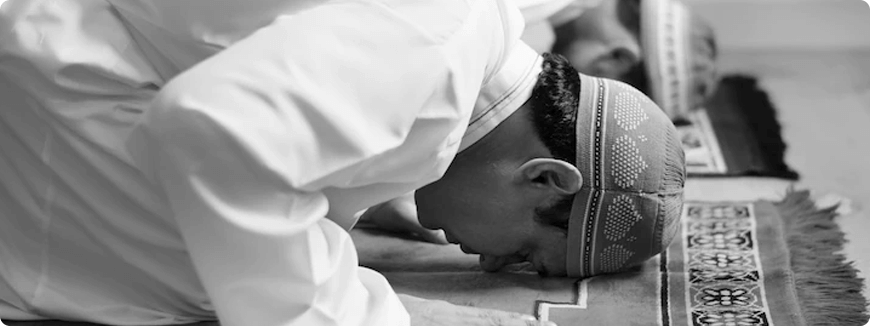
Ibn Masood’s (May Allah be pleased with him) hadith emphasises on repetition of prayer where he is reported to have said about the Prophet ﷺ invoking Allah thrice for whatever he asked for describing one of the events before migration of Muslims to Madinah. The Prophet ﷺ was praying alongside the Ka’bah. Abu Jahl ordered a she camel’s fetus be placed upon his shoulders when he went down in prostration. The Prophet ﷺ stayed in the same position until Fatima (May Allah be pleased with her) came to remove the fetus off his shoulders. When the Prophet ﷺ had finished his prayer, he invoked Allah’s imprecations upon them in a loud voice. When he prayed, he prayed thrice, and when he asked for God's blessings, he asked thrice. (Muslim)
Hanging on tight for a Dream or Something Supernatural as a Sign:
You don't need to hang tight for a fantasy! Dreams do have meanings for sure – however in case you're not qualified to decipher them, there is no compelling reason to burrow further! You can't say if the dream is only a piece of your subconscious mind or happy tiding from Allah the Merciful or only something from Satan! The dua says – "…then decree it for me and facilitate it for me …”– so assuming it's causing a greater number of hardships than ease, maybe that is a sign all things being equal!
The Prophet ﷺ said: “Dreams are of three types:
(1) Glad tidings from Allah,
(2) what is on a person’s mind, and
(3) frightening dreams from Satan. If any of you sees a dream that he likes, let him tell others of it if he wishes, but if he sees something that he dislikes, he should not tell anyone about it, and he should get up and perform prayer.” (Ibn Majah)
(1) Glad tidings from Allah,
(2) what is on a person’s mind, and
(3) frightening dreams from Satan. If any of you sees a dream that he likes, let him tell others of it if he wishes, but if he sees something that he dislikes, he should not tell anyone about it, and he should get up and perform prayer.” (Ibn Majah)
Istikhara petition isn't a method for finding the 'ghaib' (concealed), but instead a modest request unto the Knower of the unseen, the Most Powerful, to give us the best. Our obligation is to make dua, and afterwards follow His decision, as that will be best for us in sha Allah.
Performing Istikhara Prayer for the Matters that have No Doubt in Them:
Doing Istikhara for known issues is meaningless – matters that are waajib (compulsory) or mustahab (loved or supported), there is no requirement for Istikhara to choose whether to do them, and as to issues that are haram (prohibited) or makrooh (detested), there is no requirement for istikhaarah to conclude whether to keep away from them as is referenced before. The issue of Istikhara is bound to issues that are mubaah (permitted) or in mustahab matters when there is a choice to be made regarding which one ought to be given more priority.
It alludes to both extraordinary and little matters – you don't just need to do Istikhara for marriage purposes. Istikhara can be performed for life's little choices, significant choices, and in any event, for general direction in your life – presumably an inconsequential issue could shape the preparation for a major issue.
Doing Extra Things that are Not Mentioned in the Sunnah:
There are no particular measures of days for Istikhara. You can continue to make dua of Istikhara till you see obvious signs from Allah the Merciful as trouble or simplicity.
You don't need to become quiet after Istikhara and rest immediately. Although remembering Allah does make us clear our disturbing thoughts!
You do not have to add more words in an already-complete dua.
Istikhara is an exceptionally amazing asset that ought to be performed with the most extreme conviction and genuineness that Allah will direct us towards the best as it were. The motivation behind Istikhara isn't to argue with Allah for a specific wish but to ask Him for direction. In this way, when you take a specific choice after Istikhara and it doesn't end up great over the long run, never fault Allah the Merciful. It could be a surprisingly positive development. He is the one with endless insight and when He tests us with a circumstance and takes something that we thought was useful for us, have confidence in Him. As Allah says in the Qur’an:
وَعَسَىٰٓ أَن تَكْرَهُوا۟ شَيْـًۭٔا وَهُوَ خَيْرٌۭ لَّكُمْ ۖ وَعَسَىٰٓ أَن تُحِبُّوا۟ شَيْـًۭٔا وَهُوَ شَرٌّۭ لَّكُمْ ۗ وَٱللَّهُ يَعْلَمُ وَأَنتُمْ لَا تَعْلَمُونَ
“You may dislike something although it is good for you, or like something although it is bad for you: God knows and you do not.” (2:216)
Points to Note:
- No matter how enormous or little a matter is, it's ideal to do Istikhara and look for the best from Allah the Merciful.
- Have firm faith that Allah the Merciful will lead one to the most ideal decision and towards that which will bring to him/her great comfort.
- Praying two nawafil for Istikhara is best and dua for Istikhara shouldn't be performed after a farad supplication.
- Pray the Nawafil for Istikhara in the endorsed timings for Salah and not during the occasions when praying is denied.
- If a Muslim lady can't implore nawafil because of menstrual cycle, she can just make the dua and that will likewise do the trick.
- It is ideal to get familiar with the dua for Istikhara.
- Dreams are by all accounts not the only wellspring of how one learns the decision of Allah the Merciful on the matter.
- Repeating Istikhara is totally alright.
- Istikhara ought to be done along with the consultation and the insight of an educated and experienced individual.
- Have firm faith that Allah the Merciful will lead one to the most ideal decision and towards that which will bring to him/her great comfort.
- Praying two nawafil for Istikhara is best and dua for Istikhara shouldn't be performed after a farad supplication.
- Pray the Nawafil for Istikhara in the endorsed timings for Salah and not during the occasions when praying is denied.
- If a Muslim lady can't implore nawafil because of menstrual cycle, she can just make the dua and that will likewise do the trick.
- It is ideal to get familiar with the dua for Istikhara.
- Dreams are by all accounts not the only wellspring of how one learns the decision of Allah the Merciful on the matter.
- Repeating Istikhara is totally alright.
- Istikhara ought to be done along with the consultation and the insight of an educated and experienced individual.
Islam and Fortune Telling:

While Islam and its statute educates and guides us to ask Allah the Merciful for the most ideal decision in a question of significance, it ought to be noticed nobody has the information on the concealed with the exception of Allah the Merciful. it should be noted no one has the knowledge of the unseen except for Allah the Merciful. Many people resort to learning of the unseen from fortune tellers and it is prohibited in Islam to take the advice from one.
Throughout history, people have existed who claimed to have knowledge of the unseen and what was to come in the future. They are famous by many names including fortune-tellers, soothsayers, foreseers, augurs, magicians, prognosticators, oracles, astrologers, palmists, etc. Fortune-tellers use various methods and mediums from which they claim to extract their information. Some of them have no genuine information and rely upon enlightening their clients regarding general episodes which happen to the vast majority. They frequently go through a progression of meaningless ceremonies, and afterwards make determined general suppositions.
Others connect with the Jinn. This gathering is of most significance since it always includes the grave sin of Shirk (partner others with Allah the Merciful), and those involved frequently will quite often be genuinely exact in their information and subsequently present a genuine fitnah (trial and temptation) for Muslims and non-Muslims alike.
Practicing Astrology alone is considered forbidden in Islam because while it is a subject regarding the skies and the stars, it is mostly used to predict the up coming events and so those who practice astrology are usually called fortune tellers. Having an appointment with an astrologist and believing in his predictions is much worse and a haram act.
Consequently, one who seeks his horoscope comes under the ruling contained in the Prophet’s (ﷺ) statement: "The daily prayers of whoever approaches a fortune-teller and asks him about anything will not be accepted for forty days and nights." [Muslim]
(to understand more about the significance of Salah and its importance, visit Facts About Salah and Why Salah is Important).
(to understand more about the significance of Salah and its importance, visit Facts About Salah and Why Salah is Important).
These ignorant people believe that if they know what is in store for them tomorrow, they can prepare from today. In that way, they may avoid the bad and ensure the good. Yet, Allah’s Messenger ( Peace and Blessings be upon him ) was told by Allah to say (what means):
قُل لَّآ أَمْلِكُ لِنَفْسِى نَفْعًا وَلَا ضَرًّا إِلَّا مَا شَآءَ ٱللَّهُ ۚ وَلَوْ كُنتُ أَعْلَمُ ٱلْغَيْبَ لَٱسْتَكْثَرْتُ مِنَ ٱلْخَيْرِ وَمَا مَسَّنِىَ ٱلسُّوٓءُ ۚ إِنْ أَنَا۠ إِلَّا نَذِيرٌ وَبَشِيرٌ لِّقَوْمٍ يُؤْمِنُونَ
“Say [Prophet], ‘I have no control over benefit or harm, [even] to myself, except as God may please: if I had knowledge of what is hidden, I would have abundant good things and no harm could touch me. I am no more than a bearer of warning, and good news to those who believe.” (7:188)

The point of Salat ul Istikhara is that one requests what is acceptable from Allah the Merciful and that one shows his/her contemptible poverty to Him in this, as is shown by the phrasing from the dua "Verily You are able and I am not, and you Know and I don't" - demonstrating accordingly that all Power, Capability and Knowledge is Allah's alone and a worker can't have any of that besides with Allah the Merciful binds for him.
So in synopsis, a definitive solution to your Istikhara petition is what Allah makes easier for you. At last, with Istikhara, Istishara (consultation) is vital as well. One ought to, previously, during, and after performing Istikhara, look for advice from those well-wishers who are learned and experienced in the significant matter.
The Prophet ﷺ said: “The one who does Istikhara prayer will not be unsuccessful, and the one who consults will not see regret.” (At-Tabarani)
Subscribe to Our Newsletter
Stay updated on our free courses, promotions, events and more!
Thank you!
References :
FAQs
Can you read istikhara dua from a phone?
Yes, there is no issue of reciting istikhara dua from your phone as long as you are able to make sincere supplication to Allah Almighty and let Him Know what’s in your heart.
Can I recite any Surah for istikhara?
Yes, you can. Although Istikhara involves a specific dua taught by the Prophet ﷺ, there is no prohibition to recite other Surahs while sincerely asking Allah Almighty for guidance.
How to know if istikhara is positive?
There isn’t always a clear dream or strong feeling, as the wisdom behind those experiences are only known to Allah Almighty. Oftentimes, the answer to your istikhara comes through ease or difficulty in the matter moving forward. If you feel content and things start falling into place smoothly, it could be a sign. If you feel unsettled or face obstacles, that might also be an answer. Wallahu’alam.
How to do istikhara during periods?
Women can still make istikhara during their periods by reciting sincere dua without performing the Sunnah prayer, since salah isn’t permitted during menstruation.
Is sleeping necessary for istikhara?
No, sleeping isn’t required after making istikhara. While some people may see dreams that guide them, the essence of istikhara is seeking Allah Almighty’s Divine Assistance in making the right decision.
Discover Engaging Islamic Lessons for Kids with Simply Islam Academy!
Teaching Islam to children is a beautiful and rewarding journey that lays the foundation for a lifelong connection with their faith. By using creative, age-appropriate methods, you can nurture their love for Islam while instilling values that will guide them throughout their lives.
At SimplyIslam Academy, we offer a variety of engaging and interactive Islamic lessons to empower all Muslims regardless of background, age and profession. From stories of the Prophets to core principles, our platform makes learning Islam meaningful for all.
Browse through our programs today and discover how we can empower you in your journey. Start today, learn Islam anytime, anywhere.
Related Courses
About Us
SimplyIslam Academy, a subsidiary of SimplyIslam.sg, is an online Islamic education centre, delivering quality Islamic courses via online since early 2021.
The online Islamic school provides indispensable learning on the various sciences of Islam, covering Qur’an, Hadith, Sirah, Fiqh, Tasawwuf, and others.
The online Islamic school provides indispensable learning on the various sciences of Islam, covering Qur’an, Hadith, Sirah, Fiqh, Tasawwuf, and others.
Follow us
Useful Links:
Thank you!

Learn Anytime, Anywhere
Copyright © SimplyIslam Academy. All Rights Reserved.
Try Our Free Online Islamic Classes Today
Enter your email and we’ll send you notifications on our free classes.
Thank you for subscribing to our newsletter!
Try Our Free Online Islamic Classes Today
Enter your email and we’ll send you notifications on our free classes.
Thank you for subscribing to our newsletter!
